Mozambique: Fight against terrorism “remains top priority”
CIP Mozambique Elections: CNE belatedly reacts to Frelimo takeover of polling stations
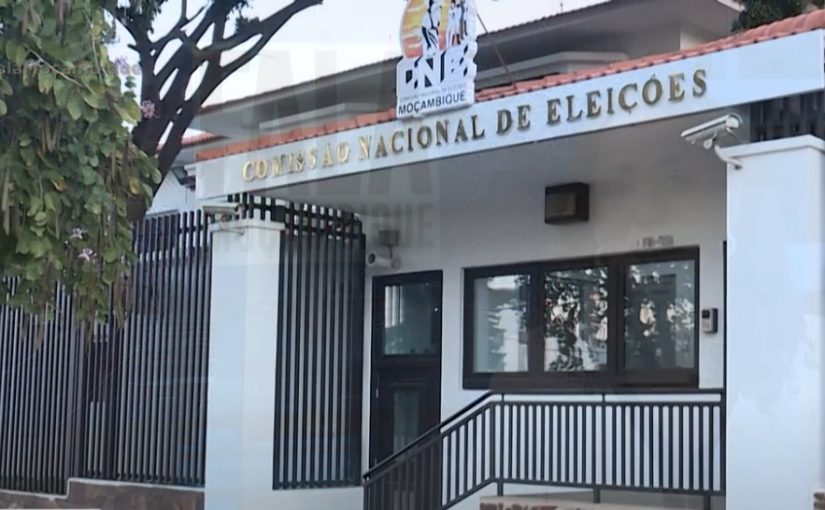
in file CoM
- Voting takes place tomorrow, 9 October.
- In a time for reflection, no campaigning yesterday and today
- Early this morning: CNE bans automatic move from trainer to polling station staff member
In an instruction circulated early this morning (Tuesday, 8 October) but dated yesterday, the National Elections Commission (CNE) prohibits the “automatic movement of national and provincial trainers, to exercise simultaneously the job of MMVs” (members of polling station). The CNE says the contracts they signed as trainers, which give them other tasks on polling day, are still in force.
The move appears to be part of a panicked last minute response to protests about Frelimo’s takeover of training and of polling stations. In another reaction, the CNE appears to have taken the advice of this Bulletin (24 September, 297) and apparently will not pay MMVs. The Law on Public probity (12/2024 art 33b) prohibits any “office holder or member of a public body [to] receive remuneration from other public institutions.”
Most trainers and polling station staff were named by STAE, illegally, not by open competition, but following letters sent by Frelimo selecting people for the posts. And trainers were also named to be MMVs. Most are already teachers and other civil servants, so cannot be paid as MMVs. It appears they will only receive a food subsidy of 500-1000 MT ($7-$15), with a promise of more money later, which is already causing protests by MMVs.
In Maganja da Costa, Zambezia, MMVs protested in front of the district STAE, refusing to go into the field without at least some money. They were still in front of STAE, with their bags packed, last night.
On Sunday night and throughout Monday, 7 October, and continuing today, clandestine meetings are being held with the MMVs where Felimo was distributing allowances
- Frelimo MMVs protest low payment for ballot box stuffing
In Mopeia, Zambézia, the meeting was held at 21.00 on Sunday, (6 October). At the entrance to the meeting all mobile phones were collected to avoid recordings. Polling station chairs were “encouraged to bring victory to Frelimo”. During the meeting, the MMVs were promised allowances of 5,000 MT ($75), which is seen as a bribe to encourage them to stuff the ballot box. The MMVs opposed this sum, and refused to accept it. They said it was much less than the 20,000 MT ($300) given to them in the 2019 elections.
One polling station chair threatened that for that low price “I won’t bring any results. I will leave everything to fate”. That is, he refused to manipulate the results in exchange for only 5,000 MT.
During Monday, negotiations took place and Frelimo agreed to increase the “allowance” to 7,000 MT. This was accepted. Both in 2019 and now the sums are being distributed by district officials of SISE (Serviços de Segurança do Estado, secret intelligence service).
Present at the Sunday meeting of polling station chairs (returning officers), deputy chairs, secretaries and fourth scrutineers in Mopeia were the district administrator, the Frelimo Party First Secretary, and the head of the Frelimo provincial brigade assisting the district, Pedro Vírgulat.
In Mágoè, Tete, a leak aborted a meeting between the MMVs and Frelimo. After posting the lists of MMVs, Frelimo telephoned the polling station chairs, who are mostly teachers and relatives of the election management bodies, to request a meeting in the Mágoè Secondary School at 21.00 on Sunday. But the phone calls were made from a private number and the callers did not identify themselves, which worried the polling station chairs. MMVs themselves, unhappy with the wages promised in the contracts they had just signed, did not keep the meeting secret. Opposition parties planned to go at the same time to the same place to catch them red-handed, so the meeting was cancelled..
- Almost all polling station chairs are civil servants or have Frelimo posts
CIP Eleições (this bulletin) has obtained the lists of the MMVs of more than 100 districts, and found that almost all the chair, deputy chairs, secretaries and fourth scrutineers are civil servants or members of Frelimo.
Just one example is Marávia district, Tete, where all MMVs supposedly hired through open competition just happen to be civil servants. In Chipungo locality, at Station 1, the chair, Eugénio Camuendo, is the assistant pedagogical director of a school; at station 3, the chair is Merino Abulamo, an official of the District Economic Activities Service (SDAE).
In Fíngoè locality, at station 3, the chair is Alberto M. Manuel Majuta, a nurse at the district hospital; at station 6, the chair is an official at the Frelimo district secretariat; at station 7, it is Ruth Sardinha, a teacher at the Fíngoè Complete Primary School (EPC); at station 5, the chair is called Chatima, and is a teacher at the same school.
In Njenda locality, at the Chidjudju polling station, the chair is Bernardo Xavier Chiranga, who is the Maravia District Secretary of the OJM (the Frelimo youth organization).
In Ngauma district, in Niassa, the chairns and deputy chairs are public functionaries in senior positions, including leaders of the Frelimo Party. For example, in the first list published, in the stations numbered 6 to 16 and 20 to 30, the chairs are school directors. In station 5, the chair is the secretary of the Frelimo locality committee. The others are heads of department and of the secretariats of the district services.
In Machanga, Sofala province, all the polling station chairs are public administration staff. Most have been placed in their own schools or the stations closest to their schools. Nurses who are polling station chairs.
In Tambara district, Manica, 198 of the 318 MMVs in the entire district are school employees. The other MMVs are members of the Frelimo Party.
- Punishment or reward? 58 chairs tried for election offences return to Quelimane to the same posts
People who were convicted of election offences during last year’s municipal elections will return to perform the same duties in the general elections tomorrow.
They are all MMVs indicated clandestinely by Frelimo in coordination with the district director of STAE. They include 58 polling station chairs, according to the list presented on Monday by representatives of the opposition on Quelimane election bodies.
When MMV training closed Friday (4 October), trainers delivered their list of approved candidates to the district STAE. However this list was ignored because Frelimo, through the district director of STAE, already had a list from Frelimo of people to occupy the four key polling station posts. But the list of appointed MMVs has not been posted, as it should be.
According to the private television station STV, citing the deputy director of the Quelimane district STAE representing the opposition, the district directors and their deputies who come from Frelimo have not put in an appearance at the STAE offices since 4 October. Likewise, five technical staff and trainers are not present at STAE. So there was no one to approve and post the lists.
- Other news
MDM not filling MMV posts: Parties with seats in parliament, Frelimo, Renamo and MDM, have the right to nominate one MMV per polling station. But in many places in Tete and Niassa, the MDM was unable to provide an MMV.
Unlimited airtime to supervise elections: In Maganja da Costa, Zambézia, Frelimo is giving school directors unlimited mobile phone airtime to supervise the elections on voting day.
Interruption of humanitarian aid leads to threat of election boycott: The World Food Programme (WFP) and other organisations interrupted humanitarian aid in Quissanga, Cabo Dlegado, either because of lack of funding or difficulties of access due to the insurgency. Some victims of the conflict told us that, even if the conditions existed, they would not vote for any party, because none of the candidates is capable of repairing the damage done by the war.
The district government has been mobilising the affected families to be in the communities on voting day, but the families say they have no transport and no food, which is a way of refusing to return to the zone of conflict.


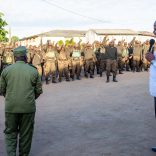
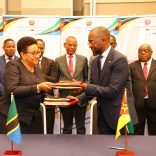

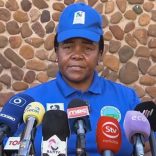
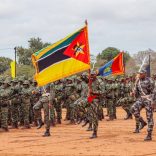





Leave a Reply
Be the First to Comment!
You must be logged in to post a comment.
You must be logged in to post a comment.